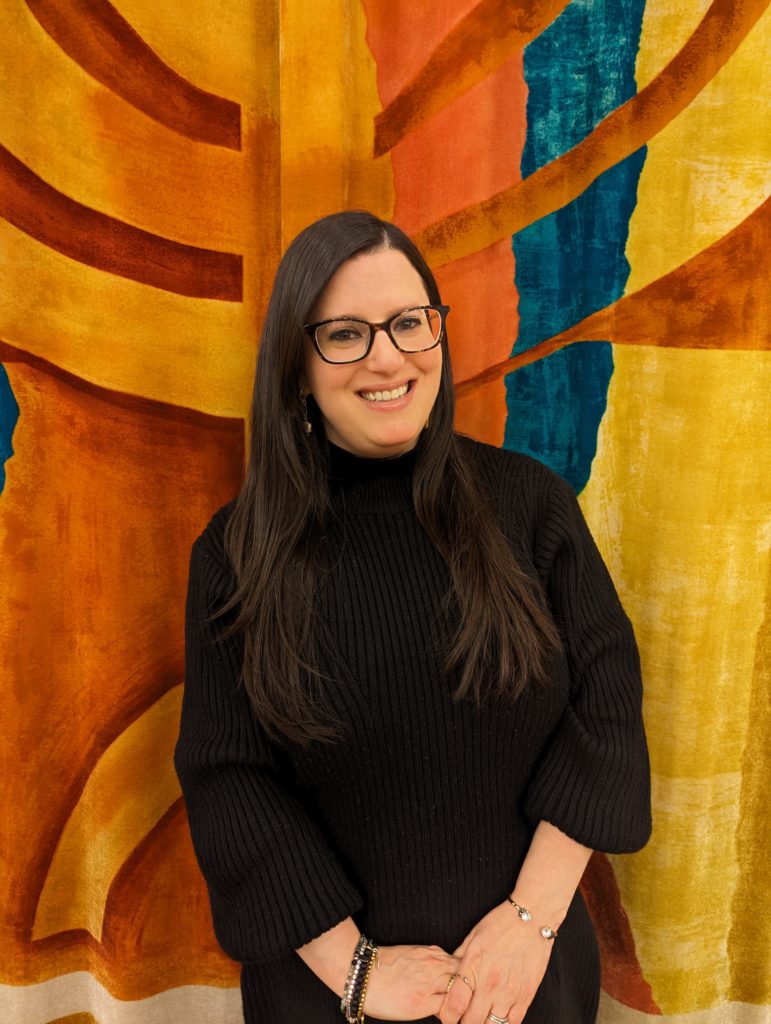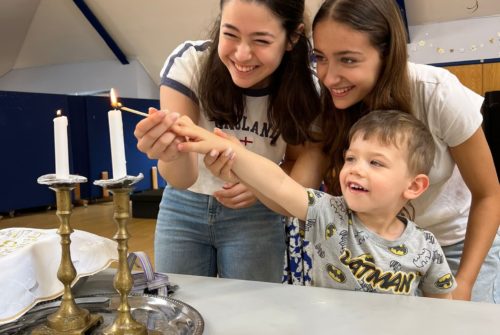I wasn’t planning on watching Kamala Harris concede the election.
After staying awake all of Tuesday night into Wednesday morning, I was physically and emotionally exhausted. But in the end, I was glad I watched.
“This is not a time to throw up our hands”, Harris reminded us in her concession speech. “This is a time to roll up our sleeves.”
Harris continued:
“Only when it is dark enough can you see the stars. I know many people feel like we are entering a dark time, and for the benefit of us all, I hope that is not the case. But here’s the thing … if it is, let us fill the sky with the light of a brilliant, brilliant billion of stars. The light of optimism, of faith, of truth and of service.”1
When I heard those four words, I wrote them down.
Optimism. Faith. Truth. Service.
This week, I wonder whether those four words, those four lights, could be anchors for us – no matter which side of the political aisle we are on.
– –
Light #1: Optimism.
When the world feels as heavy and scary as it has this week – for so many reasons – it can be more challenging than usual to muster up the belief that it will all be okay.
Perhaps we can learn from the example of one of the most optimistic figures in Jewish tradition, Rabbi Akiva. The Rabbis of the Talmud often recounted his unshakeable faith in the face of troubled times.
What enabled Rabbi Akiva to maintain his positivity? Rabbi Meir Soloveitchik explains that it might have to do with his name:
“Akiva is an Aramaic variant of Yaakov, or Jacob. Like Akiva, the patriarch Jacob is depicted as having a remarkable capacity to persevere, by working for his deceitful uncle for fourteen years in order to earn the right to marry his beloved Rachel. Moreover, the names Jacob and Akiva both derive from the word ekev, or heel. The heel is the lowest part of the body, yet, at the same time, it is the first part of the body used to take a step forward. In other words, it is precisely one’s initial downfall that can ultimately emerge as a key to progress.”
– –
Light #2: Faith.
In this week’s parasha, Avram is asked to take a leap of faith: to leave his home and to wander towards an unknown destination.
My classmate, Rabbi Eliana Fischel, wrote a piece this week that speaks to the leap of faith that was asked of Avram, and in turn, from each of us. Here is an excerpt from it:
Lech l’cha
Go. Leave your native land, your father’s house to a land that I will show you.
…
A land that I will show you.
It is possible, This land.
Flowing with milk and honey,
Equality and Justice, Goodness and mercy.
It is a long journey away.
The hike will hurt.
There is no other way.
Our journey ends in a Promised Land.
One that we receive Or one that we create.
We will create a Promised Land.
Rabbi Fischel reminds us that a Promised Land, a better world, can be either received or created. That work of creation does not stop, no matter how far away the Promised Land might feel from us.
– –
Light #3: Truth.
This morning, Oliver spoke beautifully about how a strategic lie saved Avram’s life when he and Sarai arrived in Egypt. Oliver even shared an example from his own life when he told a little white lie in order to avoid insulting a friend. I’m certain that each of us can think of a time, maybe even recently, when we have lied as a strategy to save us from a tricky situation.
It is easy to forget how dangerous lies can be. In the context of the recent election across the pond, the proliferation of lies played a huge role in deciding who the next President would be.
Rabbi Gordon Tucker, my family’s Rabbi who officiated at my Bat Mitzvah, wrote the following reflection on the election this week:
“What is most troubling is the reality that lies are, more and more, a deliberate strategy to persuade [American[ citizens… What does Jewish tradition have to say about [lying] and why it is doomed as a tactic?
A prophecy of Ezekiel (9:4–6) speaks about a disaster to be wreaked on corruption in Jerusalem, and [he notes] that the only people to be saved will be those with a mark on their foreheads. This mark was later understood in the [Talmud] to be an initial for Truth.
God’s signature, according to this teaching, is Truth itself. When it is absent, God’s presence and salvation [are] also absent, and only those who still believed in and stood up for truth would be able to survive the corruption. Truth has saving power (Talmud Shabbat 55a).
The fact that lying can yield short-term success in elections—or in anything else for that matter—must not tempt us into imagining that we can survive as a society by considering truth to be irrelevant.
No matter how easy or helpful it may feel in the moment to lie, we must remember our religious and secular responsibility to uphold the truth.
– –
Light #4: Service.
When they hate, I will love.
When they curse, I will bless.
When they hurt, I will heal.
I am a servant of the light.
I am not afraid of darkness.
I will carry on with my work as a steward of this Earth and of all her children.
When they divide, I will unite.
When they rage, I will calm.
When they deny, I will affirm.
I will simply be who I am: for that is what Spirit created me to be.
The above prayer was written by Bishop Steven Charleston, Citizen of the Choctaw Nation and a Native American Elder. It was making the rounds this week on social media, and it represents the most basic acts of service we can do for one another and for ourselves.
This week’s parasha speaks of God “blessing those who bless [Avram]
and [cursing] the one who curses him]”. While this is typically seen as a gift from God in this moment, I was reminded reading Bishop Charleston’s prayer that actually the most selfless and helpful form of service is to bless the one who blesses us, and to bless the one who curses us.
In today’s polarized political climate, this can feel like a tall order. But we need to continue to remind ourselves that we all have so much more in common than what separates us.
– –
Optimism. Faith. Truth. Service.
These four lights have guided me through a week that at times felt dark. I hope that they can be a guide for us all as we turn our attention towards what comes next: tirelessly working towards the repair of a world in need of healing. Now is precisely the time to roll up our sleeves and get to work.
Shabbat Shalom.




